50-Minute Classroom: Teaching Grilling
 Generally speaking, a perfectly grilled item should have a nice brown coating on the outside and be moist and juicy inside. Here’s how to successfully teach the technique of grilling within a shorter class period.
Generally speaking, a perfectly grilled item should have a nice brown coating on the outside and be moist and juicy inside. Here’s how to successfully teach the technique of grilling within a shorter class period.
By Adam Weiner, CFSE
January’s 50-Minute Classroom was about whether it was more important to teach recipes or techniques. I concluded that both were important. February was teaching how to read and write a recipe.
Now it is time to continue the discussion on how to teach different techniques. I’ve already addressed how to teach your students braising(September 2010), baking (July 2011) sautéing(January 2012) and steaming (March 2013).This month: grilling.
1. Teach Your Students the Difference Between Barbecuing, Smoking and Grilling:

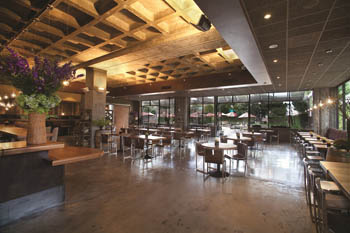
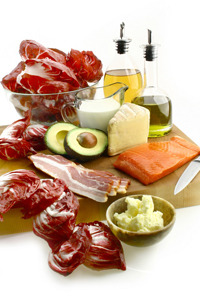
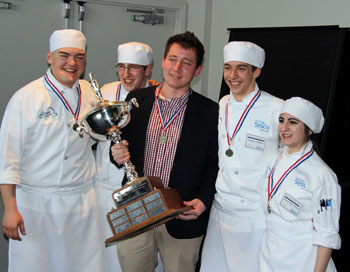 The big traveling trophy is back again at Technology Center of DuPage (TCD) in Addison. On Feb. 23, TCD’s high-school culinary team pulled off a repeat state championship win at the 12th Annual Illinois ProStart Invitational, hosted by the Illinois Restaurant Association Educational Foundation (IRAEF). TCD team members include Julia Matiradonna, Zachary Molokie (both from Carol Stream), Jared Dollinger of Glen Ellyn and Benjamin Kitchen of Wheaton. All are high-school seniors and second-year students in TCD’s Culinary, Pastry Arts & Hospitality Management program. As state ProStart champs, the TCD team now has the honor of representing Illinois at the National ProStart Invitational, April 19-21, in Baltimore, Md.
The big traveling trophy is back again at Technology Center of DuPage (TCD) in Addison. On Feb. 23, TCD’s high-school culinary team pulled off a repeat state championship win at the 12th Annual Illinois ProStart Invitational, hosted by the Illinois Restaurant Association Educational Foundation (IRAEF). TCD team members include Julia Matiradonna, Zachary Molokie (both from Carol Stream), Jared Dollinger of Glen Ellyn and Benjamin Kitchen of Wheaton. All are high-school seniors and second-year students in TCD’s Culinary, Pastry Arts & Hospitality Management program. As state ProStart champs, the TCD team now has the honor of representing Illinois at the National ProStart Invitational, April 19-21, in Baltimore, Md.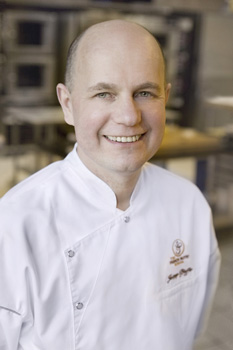 The steps to making decadent chocolates are many and varied: from harvesting the pods to designing tempting packaging that belies its rich, melt-in-your-mouth appeal. Every other year, the Fine Chocolate Industry Association (FCIA) hosts its Recognition of Excellence ceremony to award individuals and businesses that have contributed to this diverse community of chocolate makers.
The steps to making decadent chocolates are many and varied: from harvesting the pods to designing tempting packaging that belies its rich, melt-in-your-mouth appeal. Every other year, the Fine Chocolate Industry Association (FCIA) hosts its Recognition of Excellence ceremony to award individuals and businesses that have contributed to this diverse community of chocolate makers.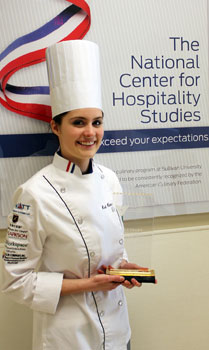 The Kentucky Restaurant Association has named Sullivan University National Center for Hospitality Studies graduate Kendall Knies the 2013 Culinary Student of the Year. The 2013 Restaurateur’s Gala and awards ceremony took place on Jan. 21 at the Brown Hotel. Knies is a native of Celestine, Ind., and a 2012 graduate of the Baking and Pastry Arts program at Sullivan. She is currently employed at The Bakery at Sullivan University. Knies was one of four Sullivan students who recently participated in the IKA World Culinary Olympics in Erfurt, Germany, where she earned a diploma.
The Kentucky Restaurant Association has named Sullivan University National Center for Hospitality Studies graduate Kendall Knies the 2013 Culinary Student of the Year. The 2013 Restaurateur’s Gala and awards ceremony took place on Jan. 21 at the Brown Hotel. Knies is a native of Celestine, Ind., and a 2012 graduate of the Baking and Pastry Arts program at Sullivan. She is currently employed at The Bakery at Sullivan University. Knies was one of four Sullivan students who recently participated in the IKA World Culinary Olympics in Erfurt, Germany, where she earned a diploma.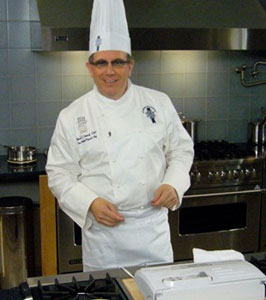 Le Cordon Bleu graduates 13,000 students a year. As this author reveals, the biggest change among U.S. schools involves teaching interpersonal skills so that successful grads know what’s going on all over the business.
Le Cordon Bleu graduates 13,000 students a year. As this author reveals, the biggest change among U.S. schools involves teaching interpersonal skills so that successful grads know what’s going on all over the business.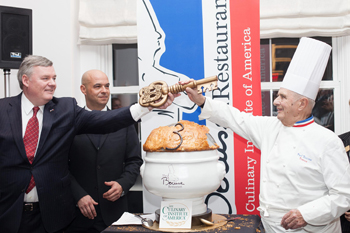 In celebration of The Bocuse Restaurant opening in February at The Culinary Institute of America, Paul Bocuse made a special trip from Lyon, France, for the star-studded inaugural dinner cooked by CIA students.
In celebration of The Bocuse Restaurant opening in February at The Culinary Institute of America, Paul Bocuse made a special trip from Lyon, France, for the star-studded inaugural dinner cooked by CIA students.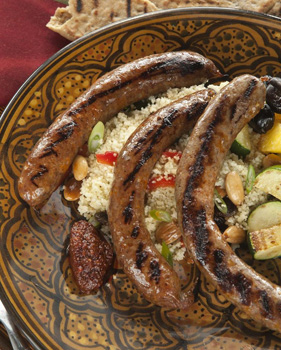 The U.S. renaissance in charcuterie coupled with diners’ love of sausage makes housemade sausages a customer-satisfying, brand-building notion.
The U.S. renaissance in charcuterie coupled with diners’ love of sausage makes housemade sausages a customer-satisfying, brand-building notion.